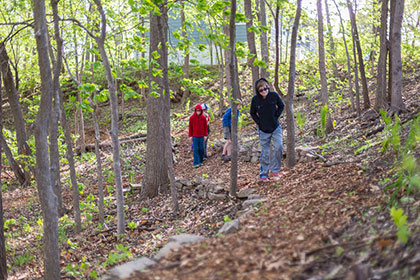An elementary school experience that will forever shape your child’s relationship with learning.
Our elementary students are the agents in their own education and progress in their learning at an individual pace. Children are encouraged to explore their own interests while meeting age-appropriate standards within the boundaries of the school day.
The Co-op curriculum features strong language arts, mathematics, and cultural programs that encourage interrelated learning.
Children are exposed to high quality reading materials and creative writing. Global ideals and tolerance are taught through the study of history, geography, geology, science, art and music. Students complete projects together and solve problems while learning conflict-resolution skills and the ability to assess moral questions and ideals.
Children spend all day in the classroom learning. We believe they need their afternoons and evenings to pursue their personal interests, interact with their families, and relax.
We believe that outdoor learning sparks the imagination and nurtures reasoning skills. Through a planned environment both inside and out, your child will learn about nature in ways that can only happen outside of a traditional classroom.
Elementary students also enjoy a full hour of recess each day. The school is intentionally located in a large, wooded outdoor space where students can play and explore.
 The Co-op features a large, wooded outdoor space for kids to explore.
The Co-op features a large, wooded outdoor space for kids to explore.
The Co-op’s, small, multi-age, three-year classrooms foster mutual respect and relationships that grow over time. This creates an environment where elementary children feel safe and at home.
We work with teachers and and parents to promote learning environments where the students are known and valued as individuals. Children develop lasting relationship with teachers and peers and are encouraged to work collaboratively and cooperatively. Elementary students often interact with younger children at The Co-op.
Our school was founded on togetherness. Parents are actively involved in all aspects of school life and have the opportunity to lead and shape the operations and vision of the school. They honor diversity and value their responsibilities to the community and to the environment, as well as their children’s learning.
A high level of parental involvement also helps to keep tuition costs low.
 Elementary students often interact with younger children.
Elementary students often interact with younger children.